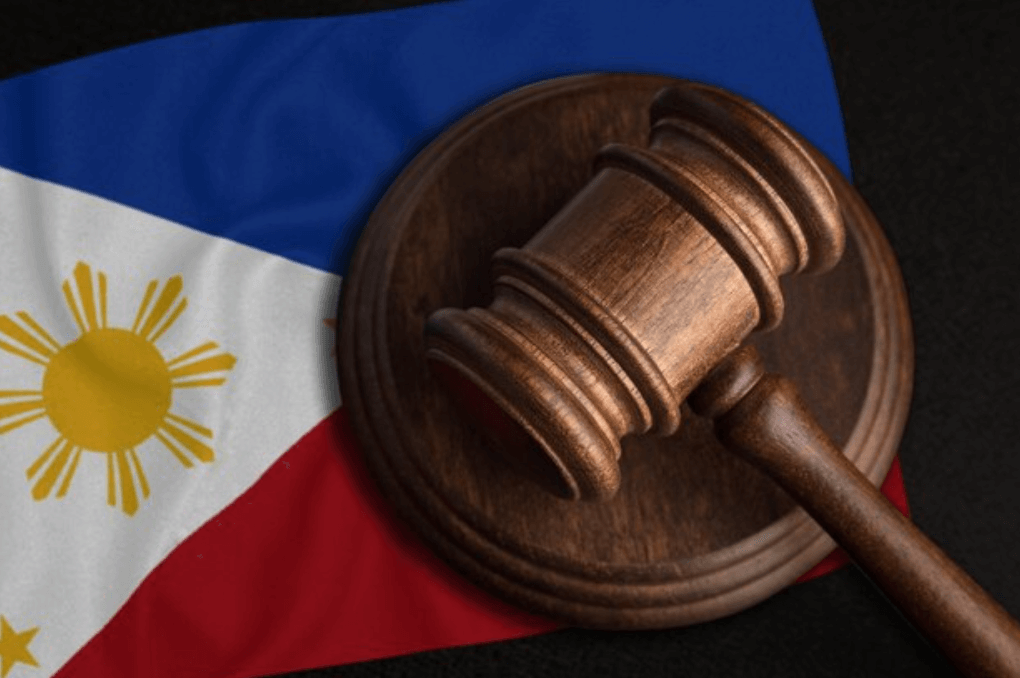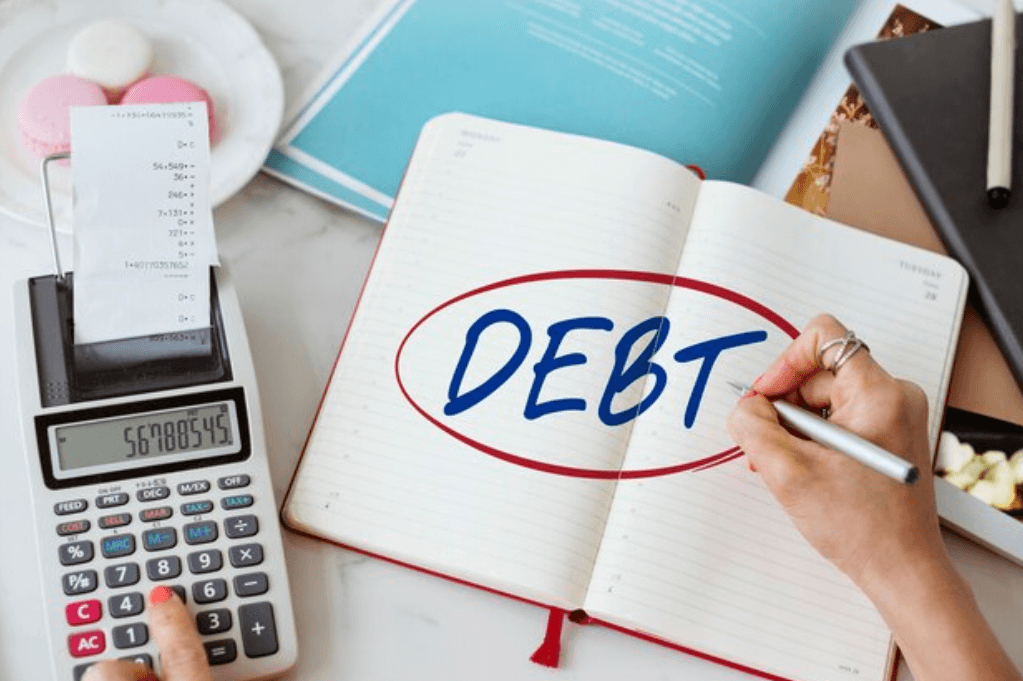Philippine Law on Unpaid Debt: What Happens if you Don’t Pay Back your Loan?
Key takeaways:
- In the Philippines, failure to pay debt is treated as a civil matter, not a criminal one, with the law prohibiting imprisonment for debt.
- Creditors can file civil cases known as “Collection for a Sum of Money” to recover the owed amount.
- Criminal liability can arise in cases of fraud or deceit under Republic Act No. 8484, especially when abandoning a debt with presumed intent to defraud.
- Delinquency or default on loan repayments can severely affect your credit score, hindering future borrowing capabilities.
- Creditors and debtors can negotiate payment terms to ease the burden of repayment, providing a win-win situation for both parties.
Table of Contents
Online loans are a convenient and fast way to help cover unexpected expenses, pay bills, or fund your personal or business needs. According to the BSP’s Financial (1) Inclusion Report revealed that as much as 47.1% (2) of Filipino adults borrow money as of 2024. However, taking out a loan requires financial responsibility, and failing to pay your loans can have negative consequences.
Some people may think that unpaid online loans simply “go away” after a while. The reality is that unpaid online loans do not disappear or get forgotten. Online lenders have the right and the means to pursue legal remedies against borrowers who fail to pay their debts.
Online lenders can also report borrowers’ delinquency or default to the credit bureaus, which can affect their credit score and history. Therefore, borrowers should not ignore or abandon their online loan obligations.

Philippine Law About Unpaid Debt
The Philippines has its own set of laws and regulations regarding debt recovery, and it’s important to understand them if you’re dealing with credit issues in the country.
The Philippines’ Bill of Rights (Article III, Section 20 of the Philippine Constitution) states that “No person shall be imprisoned for debt.” (4) This means that one cannot be jailed merely because they cannot pay a debt. Historically, this provision was put in place to ensure that practices like “debtors’ prisons” are not revived.
The Philippine law has a specific stance when it comes to unpaid debt. Here are the key points:
1. No Imprisonment for Debt:
Philippine law subscribes to the principle that no person shall be imprisoned due to debt. This is enshrined in the Philippine Constitution and is upheld over any other law or statute in the country (1).
2. Civil Liability:
While criminal cases for unpaid debt are not entertained, creditors have the right to file a civil case to recover the money owed. Such cases are referred to as a “Collection for a Sum of Money” and are aimed at recovering the debt amount from the debtor3.
3. Legal Requirements for Loan Repayment:
There are established legal requirements for loan repayment. While failing to meet these does not lead to criminal liability, it’s crucial for borrowers to understand these requirements as they can affect the loan and potential civil cases that might arise from non-payment4.
4. Non-Criminal Liability:
The failure to pay debt is seen as a civil liability rather than a criminal one, which means that while debtors won’t face jail time, they could still be held legally responsible for the repayment of their debts5.
5. Negotiation and Settlement:
It’s also worth noting that debtors and creditors can negotiate for a debt settlement or restructuring to ease the burden of repayment. This may include modifying the payment terms, reducing the interest rate, or other arrangements that can help in managing the debt.
6. Credit Reporting:
Unpaid debts can affect a debtor’s credit score and future borrowing capability. Creditors may report the non-payment to credit bureaus, impacting the debtor’s credit history negatively.
In many instances, creditors in the Philippines are open to negotiating payment terms rather than proceeding with lawsuits. This is often more cost-effective and less time-consuming for both parties.
- Get up to PHP 25,000 in just 4 minutes
- Only 1 Valid ID needed to Apply

Is there a Criminal Case for not paying Debt in the Philippines 2024
While criminal cases leading to imprisonment are not pursued for debt non-payment, it’s crucial to note that lenders may file civil cases against debtors in court for the collection of money owed, when they default on a loan3. Moreover, there are legal requirements for loan repayment that individuals must adhere to, as failing to meet these requirements can lead to legal implications, albeit not criminal liability (5).

What Happens if you don’t Pay Back your loan on time?
If you don’t pay back your online loan on time or at all, you can face several consequences, such as:
| 1️⃣ | Late fees | If you miss a payment or pay less than the minimum amount due on your online loan, you will incur late fees. Lenders may charge late fees if your payments are partial or delayed. |
| 2️⃣ | Interest charges | If you don’t pay back your online loan in full by the due date, you will also accrue interest charges. Interest charges are fees that lenders charge for lending you money over time. |
| 3️⃣ | Lower credit score | If you default on your online loan, your lender will report your delinquency or default to the credit bureaus. This will negatively affect your credit score, which is a numerical representation of your creditworthiness. |
| 4️⃣ | Collection actions | If you default on your online loan, the lender can take collection actions against you. |
| 5️⃣ | Legal actions | If collection actions fail to recover the money borrowers owe, lenders may also resort to legal actions. |
When can you be Jailed for Debt in the Philippines
One of the most common questions about unpaid debt in the Philippines is the question, “can a person be imprisoned for debt.” The Philippine Constitution prohibits imprisonment for unpaid debt. Article III, Section 20 of the 1987 Constitution states that “no person shall be imprisoned for debt.” Therefore, a bench warrant for unpaid debt Philippines cannot be issued.
However, there are some exceptions to this rule. You can be jailed for debt if:
- Your debt involves fraud or deceit
- Your debt involves an access device violation
- Your debt involves tax evasion
- Your debt involves non-payment of alimony or child support
These are not debts per se but crimes that are punishable by law about debt in the Philippines. Therefore, you should not confuse debt with crime and avoid committing any fraudulent or illegal acts with your online loan. There is a law for non imprisonment for debt, but not against related crimes.
Law RA 8484 Abandoning of debt: Presumed intent to defraud
The Republic Act No. 8484 (6), also known as the Access Devices Regulation Act of 1998, is a law for not paying debt in the Philippines that regulates the use of access devices. Access devices are any cards, codes, accounts, or other means that can be used to get money, goods, services, or anything else of value. RA 8484 abandoning of debt says that you cannot do any dishonest or illegal things with access devices, such as:
- Using an access device with the intention to cheat or defraud
- Making a fake access device or altering an existing one
- Stealing an access device or obtaining it by fraud
- Lying to get an access device or using someone else’s identity
- Using an expired, revoked, canceled, suspended, or invalid access device
If you violate the debt law Philippines, RA 8484, you can face a criminal case for not paying debt in the Philippines (2024). According to the Philippine News Agency (7), you can be fined at least PHP 10,000 and be imprisoned from 6 to 20 years. There are potential consequences from Philippine law on personal debt.

Learn How to get
Secure Loans: List of Legit Online Lending Apps Philippines
How to Sue someone for Unpaid Debt in the Philippines
If someone owes you money and refuses to pay it back, you can sue them for unpaid debt in the Philippines. To sue someone for unpaid debt in the Philippines, you can follow these steps:
- Consult a lawyer: A lawyer can help you prepare your case, advise you on your legal options, and represent you in court.
- Prepare a complaint: A complaint is a document that states the facts of your case, the amount of money owed, the legal basis of your claim, and the relief sought.
- File the case: You should file your complaint with the appropriate court that has jurisdiction over your case.
- Serve summons: You should serve summons to the debtor or their representative.
- Wait for the debtor’s answer: The debtor has 15 days from receipt of summons to file their answer to the complaint.
- Proceed with trial: If the debtor files an answer within 15 days, the case will proceed with trial.

The reality of Unpaid Loans: What’s going to happen?
If you don’t pay your loan, the following events can typically occur in sequence. Note that the exact order and consequences might vary based on the lender, the jurisdiction, the type of loan, specific lender practices and the terms of the loan agreement:
- Missed Payment: The day after your payment due date, you’ve officially missed a payment.
- Late Fee Assessment: Depending on the loan’s terms, after a certain number of days past your due date, you could be charged a late fee.
- Contact from Lender: Your lender will likely contact you via phone, email, or mail to remind you of the missed payment and to discuss potential solutions.
- Loan Becomes Delinquent: Your loan status will change to “delinquent” if you remain behind on payments. This typically starts from the day after the missed due date.
- Impact on Credit Score: After your payment is 30 days late, the lender may report the delinquency to the credit bureaus, leading to a decrease in your credit score.
- Higher Interest Accumulation: The longer you don’t pay, the more interest accumulates on the amount owed, increasing the total debt.
- Increased Communication: The lender might intensify their communication efforts, sending more frequent reminders or warnings.
- Loan Default: If you continue not to pay for an extended period (e.g., 90 days or as specified in your loan agreement), your loan might be considered in default.
- Demand Letter: The lender could send a demand letter, which is a formal notification asking you to pay the entire outstanding balance immediately.
- Debt Collection: If the debt is not settled, the lender might either refer your account to their internal collections department or sell the debt to an external collection agency. You’ll then be contacted by these entities to settle the debt.
- Legal Action: Depending on the size of the debt and the jurisdiction, the lender might decide to take legal action against you to recover the owed amount.
- Seizure of Collateral: If the loan was secured (e.g., car loan, mortgage), the lender has the right to seize and sell the collateral to recover the owed amount.
- Wage Garnishment: If the lender wins a lawsuit against you, they could potentially garnish your wages, meaning a portion of your salary could be taken to pay off the debt.
- Long-term Credit Score Damage: A loan default will remain on your credit report for several years, making it difficult for you to borrow in the future or get favorable interest rates.
- Potential for Settlement: After some time, the lender or collection agency might be willing to negotiate a settlement for a lesser amount than originally owed

Need money urgently? Bank rejections? Apply for a secure loan with Digido at 0%. Calculate your pre-approved loan amount with Digido calculator:
* Interest payments are approximate. The final loan amount and interest rate must be confirmed in your loan agreement after loan approval.
Find out how to
Build Your Emergency Fund in the Philippines
Can Property be Seized if the Loan is Unsecured?
If a loan is unsecured, it means that it was granted without collateral. However, this doesn’t mean that the creditor has no recourse to take action to recover their money.
In cases where the court has rendered a decision in favor of the creditor, and the debtor cannot pay, property seizure can be used as a last resort. A sheriff can enforce the judgment by garnishing wages or seizing properties to satisfy the judgment, but there are specific rules and exemptions, especially when it comes to properties that are considered essential for a debtor’s family and work.
Legal action for not paying debt an unsecured loan in the Philippines:
- Legal Action: The creditor can file a lawsuit in court to recover the debt from the debtor.
- Court Decision: If the court decides in favor of the creditor, it may issue a writ of execution to recover the debt.
- Property Seizure: Based on the court’s decision, a sheriff or an authorized officer can enforce the judgment by seizing the debtor’s assets, even if the loan was unsecured.
- Wage Garnishment: Depending on the Philippines’ legal framework and the court’s decision, a portion of the debtor’s salary might be garnished to repay the creditor. This is not a common practice in the Philippines, and it’s subject to specific conditions. However, with a court order, wages can be garnished to repay a debt.
However, it’s essential to note that laws regarding debt recovery can vary. In some jurisdictions, property seizures or wage garnishments for unsecured debts may be limited or have specific conditions.

Consequences of Defaulting on online loans
Defaulting on online loans can have serious and lasting consequences on your financial situation and your future opportunities. Some of the debt law in the Philippines for defaulting on online loans are:
⛔️ Negative credit score impact
Defaulting on online loans can lower your credit score and damage your credit history. This can make it harder to get approved for other loans or credit cards or get favorable interest rates and terms.
⛔️ Risks of property repossession or foreclosure
If you do not repay a loan secured by your property or asset within the agreed time frame, the lender can take away your property or asset.
⛔️ Specific consequences for government loans and withheld benefits
Defaulting on government loans can have additional consequences, such as losing your eligibility for other government programs or benefits. For example, if you default on your student loan, you may be unable to apply for another student loan, scholarship, or grant.
⛔️ Court costs, collection fees, and attorney’s fees
Defaulting on online loans can also incur additional costs and expenses, such as court fees, collection charges, and lawyer’s fees

Difference between loan Delinquency and loan Default
Loan delinquency is usually measured by the number of days past due on your loan payment. For example, if your loan payment is due on the 15th of every month and you pay it on the 20th, you are 5 days delinquent. Loan delinquency can affect your credit score and incur late fees and interest charges. It signifies the beginning of payment issues and serves as an early warning signal. However, during this phase, the borrower still has an opportunity to address the late payment, often without severe repercussions.
Loan default, on the other hand, is a more severe and definitive state of non-payment. It’s determined by the terms and conditions of your loan agreement. For instance, if your loan agreement specifies that you will be considered in default if you miss three consecutive payments or if you fail to pay 90% of the principal amount within a certain timeframe, then meeting those criteria would put you in default.
Once a loan is in default, the lender has the right to take more drastic measures, which can include initiating legal proceedings, seizing collateral, or reporting the default to credit bureaus, which could have a long-term detrimental effect on your credit. The lender may also demand the entire loan amount to be paid immediately, rather than sticking to the original payment plan.
In essence, while both delinquency and default indicate problems with loan repayment, delinquency represents an initial stage of payment issues, and default indicates a more entrenched and serious problem, often leading to more severe consequences for the borrower.


Learn How to
Fight Loan Sharks Harassment in the Philippines
How to Avoid Defaulting on loans in the Philippines
Defaulting on loans can have severe consequences, from impacting your credit score to legal action. It’s crucial to understand how to manage your finances and communicate effectively with lenders to avoid such situations. Here are some strategies and tips to consider:
1. Tips and Strategies for Managing Finances Responsibly
- Budgeting: Create a detailed budget that accounts for all your income and expenditures. Prioritize essential expenses and set aside a portion of your income for loan repayments.
- Emergency Fund: Build an emergency fund, even if it’s just a small amount at first. This can cover unexpected expenses without needing to borrow more.
- Avoid Multiple Loans: Don’t take on multiple loans at once. It can be tempting, especially with the accessibility of online loans, but it’s essential to manage one loan at a time.
- Prioritize High-Interest Loans: If you have multiple debts, prioritize paying off loans with the highest interest rates first.
- Understand Your Loan Terms: Ensure you fully understand the terms, interest rates, and repayment schedules of any loan you accept.
2. Importance of Communication with Lenders and Seeking Flexible Payment Plans
- Open Lines of Communication: If you foresee difficulty in making a repayment, communicate with your lender in advance. They might be more understanding than you think.
- Negotiate: Lenders would often prefer to get a reduced amount or delayed payment than none at all. Discuss the possibility of restructuring your loan or obtaining a more flexible payment plan.
3. Resources and Platforms That Can Assist in Loan Settlements
- Debt Counseling: Seek advice from accredited financial institutions or NGOs that offer free debt counseling. They can provide guidance on how to manage your loans effectively.
- Peer-to-Peer Lending: Platforms like FundKo can help you consolidate your loans at potentially lower interest rates.
- Loan Comparison Websites: Websites like MoneyMax.ph or iMoney.ph can help you find loans with the best terms and rates.
4. Other Tips
- Stay Educated: Continuously educate yourself about financial literacy. The more you know, the better decisions you’ll make
- Avoid Loan Sharks: Loan sharks or “5-6” lenders offer fast money but at extremely high-interest rates, leading to a vicious cycle of debt.
- Limit Unnecessary Expenses: If you’re serious about repaying your loans, limit luxury or non-essential purchases. This includes dining out, expensive gadgets, or vacations.
- Use Loan Extensions Sparingly: While many online lenders might offer extensions, they often come with high fees and interest rates. Use them as a last resort.

Learn How to get
Debt Consolidation Loan Philippines: Managing Debt with a Single Loan
Can you still Contact the Creditor if you cannot Repay the Debt?
Yes, it’s often encouraged to contact your creditor if you’re unable to repay your debt.
It’s advisable to contact your creditor as soon as you realize you might have trouble repaying your debt. Early communication can be beneficial for both parties and may lead to an amicable solution.
Explain your financial situation to your creditor. Be prepared to provide evidence of your current financial status, such as recent pay stubs, bank statements, or evidence of unforeseen expenses or hardship.
Many creditors may be willing to work with you to modify your payment plan. They might offer a temporary reduction in your monthly payment, lower your interest rate, or even provide a temporary forbearance.
Ensure that any agreement made with the creditor is documented. It’s crucial to have a written record of any modifications to your payment plan.

In conclusion
Taking out an online loan is a great way to get some extra cash when you need it, but it also comes with responsibilities and obligations. Defaulting on a loan can negatively impact your credit score and your overall financial situation.
The key to avoiding defaulting on online loans in the Philippines is to live within your means, manage your finances wisely, and maintain open communication with lenders. By following these strategies and tips, you can stay on top of your debts and enjoy financial peace of mind.
FAQ
-
Can you sue someone for not paying debt to the Philippines?Yes, in the Philippines, if someone owes you money and fails to pay, you can take legal action for not paying debt in the Philippines. One of the most common methods is to file a Civil Case for a Sum of Money.
-
What case can I file for not paying debt in the Philippines?If someone is indebted to you in the Philippines, you have the legal right to initiate a civil lawsuit for the recovery of the owed amount.
-
Can you be imprisoned for debt in the Philippines?No, you cannot be imprisoned for debt in the Philippines. Imprisonment for debt is prohibited by the Philippine Constitution.
-
What is the non-payment of debt consequences in the Philippines?Consequences for non-payments on debt in the Philippines include a civil case for a sum of money, foreclosure, collection fees, and a lower credit score.
-
What happens if you never pay back your loan?If you don’t pay your online loan back at all, you can lose your car or house, incur additional fees, and the lender can take you to court.
-
What is legal action for unpaid debt in the Philippines?In the Philippines, for unpaid debt, creditors can file a civil case for a "Collection for a Sum of Money" to recover the owed amount. This legal action does not lead to criminal liability, but aims at ensuring debt repaymen
-
What happens if you ignore a debt collector?Ignoring a debt collector can escalate the collection process. This could include pursuing a civil case or utilizing other legal avenues available under Philippine law to ensure debt repayment. For example, filing a case for Estafa, a form of swindling which is a criminal offense.
-
What to do if you’re being harassed about a delinquent payment?If you’re being harassed about a delinquent payment, you can file a complaint with a regulatory agency such as the SEC or the NPC. If the identity of the offender is unknown, victims may file complaints with the NBI-Cybercrime Division or the PNP-Anti-Cybercrime Group. The DOJ advises victims of harassment and unfair debt collection practices to file complaints before the Office of the Prosecutor, particularly if unauthorized access to personal information or threats have been mad/
-
Can lenders file a case against borrowers if they can’t be jailed for non-payment of a loan in the Philippines?Yes, lenders can still file a civil case against delinquent borrowers for moral, exemplary, and/or other types of damages.
-
Can I go to jail for not paying home credit?No, you cannot go to jail for failing to pay your home credit in the Philippines.
-
What is the Republic Act for not paying debt in the Philippines?Under Republic Act No. 10870, otherwise known as the Philippine Credit Card Industry Regulation Law, default or delinquency refers to the nonpayment or payment of an amount less than the amount required to be paid for at least three billing cycles.
-
What is the unpaid debt law of the Philippines?By law, failure to pay debt is a civil matter, and the debtor cannot go to jail for failing to pay debt in the Philippines but there are exceptions like if a debtor's actions are found to be fraudulent or malicious, such as in cases outlined under Republic Act No. 8484 (Access Devices Regulation Act of 1998), where abandoning a debt with a presumed intent to defraud can lead to criminal liability. Moreover, while not leading to imprisonment, failure to pay debt can result in civil cases, tarnished credit scores, and legal actions aimed at recovering the owed amount.
Articles sources
- 1. BSP - Inclusive Finance
- 2. Tonik Bank - Loan Statistics Philippines
- 3. Paladins of Law - Imprisonment Over Non-Payment Of Debts Part 1
- 4. RALB Law - Can You Be Jailed for Debt in the Philippines?
- 5. The Manila Times - Failure to pay debt does not amount to criminal liability
- 6. The LawPhil Project - Republic Act No. 8484
- 7. Philippine News Agency
Authors
Digido Reviews
-
SamhFor anyone looking for easy online loan, Digido is a solid choice! Even with not the cleanest credit history, when there was a temporary difficulty with non-payment of debt i got my loan approved in like 10 minutes. Great 👍5
-
MikeAfter getting a no from a couple of banks, I gave Digido a shot. No guarantor needed, and the process was super quick and totally online. Just one id and a few clicks on my phone, and I got my cashloan without stepping out of the house.4
-
RickyI tried borrowing here even though I was in debt and i was lucky, my application was approved in Digido and I got the money quickly. Generally, if you have unpaid debt in the Philippines, the law does not prohibit you from taking out a loan. Try this service, highly recommend it to anyone who needs fast money!5



